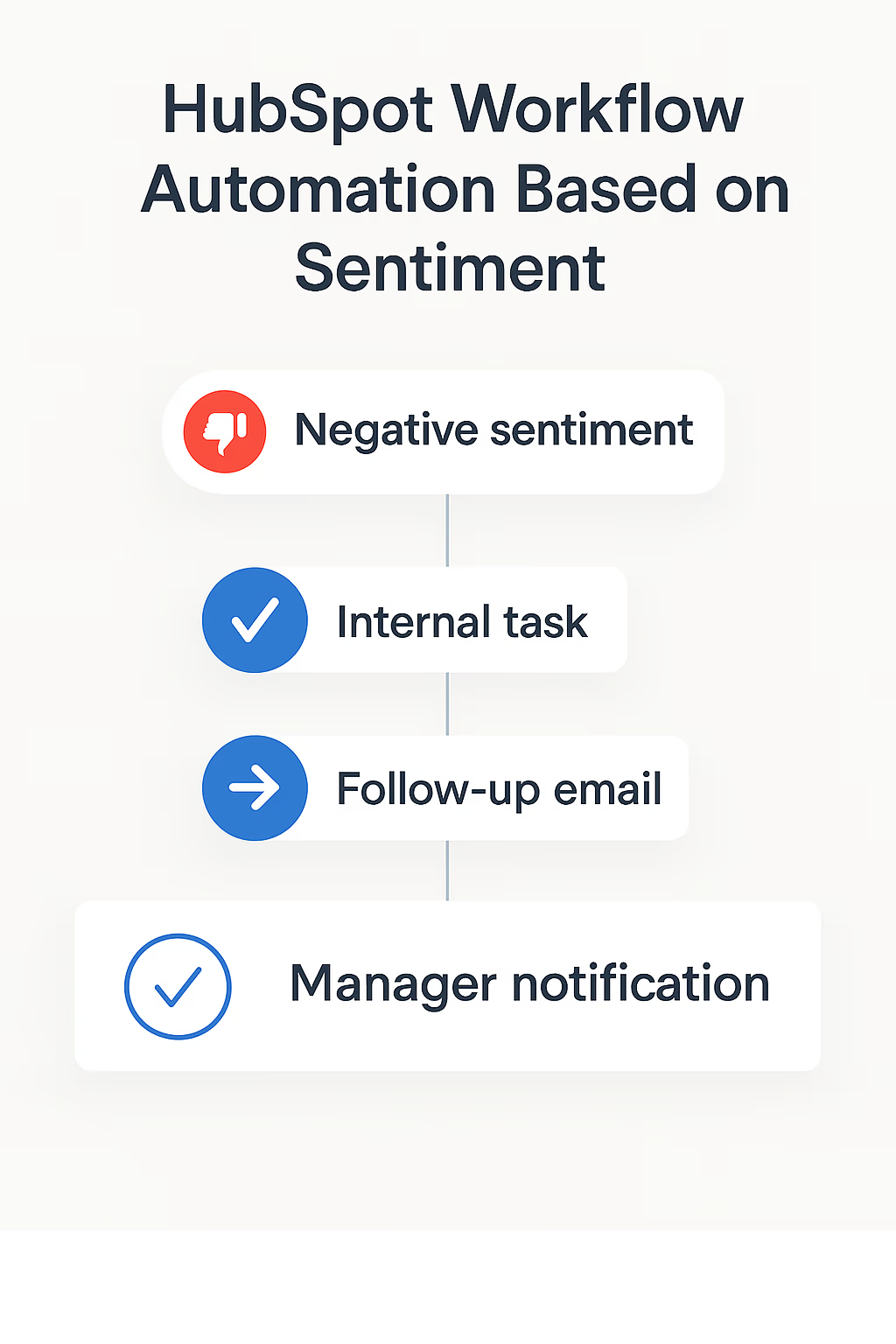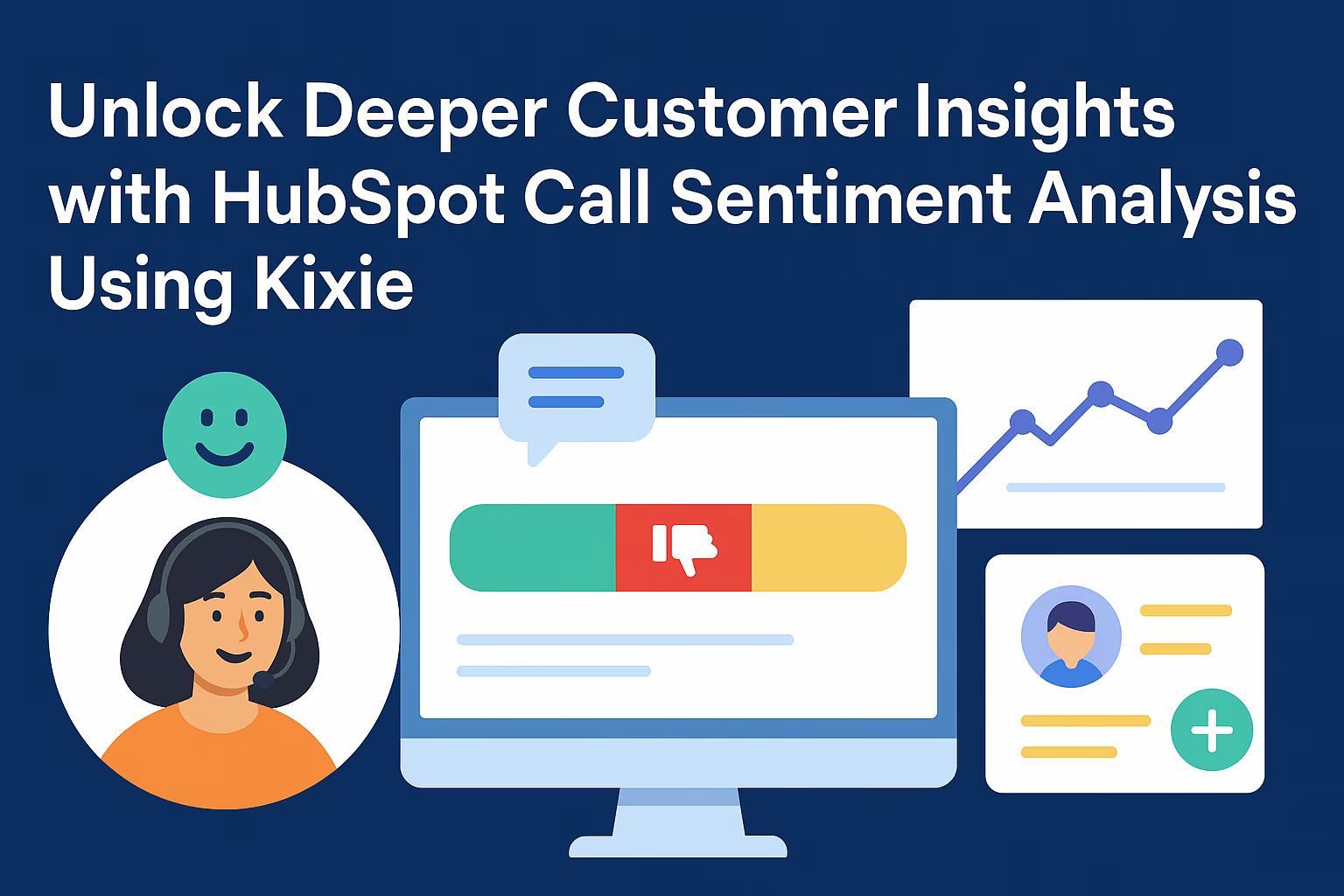Do you really know how your customers feel during your calls? Every phone call is packed with subtle emotional cues, from excitement to hesitation, that can impact your sales and customer retention. HubSpot provides a solid foundation for managing customer relationships—but its native tools for analyzing call sentiment might leave you wanting more detailed insights. That’s exactly where Kixie’s advanced call sentiment analysis steps in to enhance your HubSpot workflows.

Why Traditional Call Analysis Isn’t Enough for HubSpot Users
Relying solely on call recordings or manual reviews to gauge customer sentiment isn’t just time-consuming; it’s often inaccurate. Manual methods miss critical nuances, leaving your team guessing about customer emotions. While HubSpot’s built-in analytics can transcribe and summarize conversations, detailed emotional analysis—such as detecting frustration, enthusiasm, or uncertainty—is limited, especially if you aren’t on an Enterprise plan. This gap matters. Understanding exactly how a customer feels during a call can determine whether a deal closes or slips away. If your goal is stronger customer relationships and more effective sales conversations, you need deeper, real-time insights into call sentiment.Enhancing Your CRM: HubSpot Call Sentiment Analysis Powered by Kixie
Kixie offers a powerful yet user-friendly integration to fill the sentiment analysis gap within HubSpot. With AI-powered sentiment analysis, Kixie automatically detects emotions throughout your customer calls, categorizing interactions as positive, negative, or neutral. This goes far beyond basic keyword tracking—it analyzes tone of voice, pacing, and even subtle language cues, giving you an accurate, real-time understanding of customer sentiment. Because Kixie integrates directly with HubSpot (even on the free plan), every call is logged and analyzed seamlessly. You’ll find call summaries and full transcripts right on your HubSpot contact pages, ensuring crucial emotional insights are always at your fingertips.Key Benefits of Using Kixie for HubSpot Sentiment Analysis
Increase Your Sales Success Rate
Spot negative sentiment early—like customer objections or hesitations—and immediately address them to save deals. Positive sentiments, on the other hand, indicate readiness to buy, guiding your team to confidently move conversations toward closing.Prevent Customer Churn with Proactive Engagement
Negative sentiment can signal a customer who is frustrated or on the verge of leaving. Kixie’s insights help you proactively engage these customers, resolving their concerns before they escalate, ultimately reducing churn.Improve Sales Coaching and Team Performance
Using sentiment analysis data, you can identify the communication styles and techniques of your best performers. Train your entire team by replicating these successful strategies, while offering targeted coaching to reps struggling with negative feedback or tough conversations.Automate and Streamline Your HubSpot Workflows
With sentiment insights integrated into HubSpot workflows, negative sentiment can automatically trigger alerts or follow-up tasks. Imagine your team immediately receiving notifications to follow up on potentially problematic calls, improving response times and customer satisfaction.
How Kixie Integrates Seamlessly with Your HubSpot CRM
Connecting Kixie to HubSpot is straightforward—often taking just a few clicks. Once integrated:- ✓ All calls and SMS messages automatically log as native HubSpot activities.
- ✓ Kixie generates clear, concise call summaries, sentiment scores, and keyword tracking directly inside your HubSpot records.
- ✓ You can instantly review full call transcriptions to understand precisely where a call succeeded or struggled.
Best Practices for Maximizing HubSpot Call Sentiment Analysis
To fully leverage Kixie’s call sentiment capabilities within HubSpot, follow these best practices:
- Clearly define your objectives—whether improving sales conversions, customer retention, or sales coaching.
- Regularly train your team on interpreting sentiment scores and adapting their communication strategies accordingly.
- Refine call scripts by analyzing phrases consistently linked to positive or negative outcomes.
- Use HubSpot workflows to automate responses based on sentiment—like proactive outreach after negative calls.
- Monitor trends over time, adjusting your sales and customer service approaches based on ongoing insights.
Real-Life Examples: How Sentiment Analysis Transforms Customer Interactions
Reducing Churn
An account manager noticed a spike in negative sentiment from a major client. Using call transcripts and sentiment insights, they identified the specific issue, offered timely solutions, and retained the customer.
Improving Sales Calls
A sales manager identified negative sentiment tied to pricing discussions. They adjusted the team’s approach and provided additional training, significantly boosting close rates.
Increasing Upsells
Positive sentiment during a call alerted a sales rep that a customer was interested in additional products. This insight led directly to a successful upsell opportunity.




